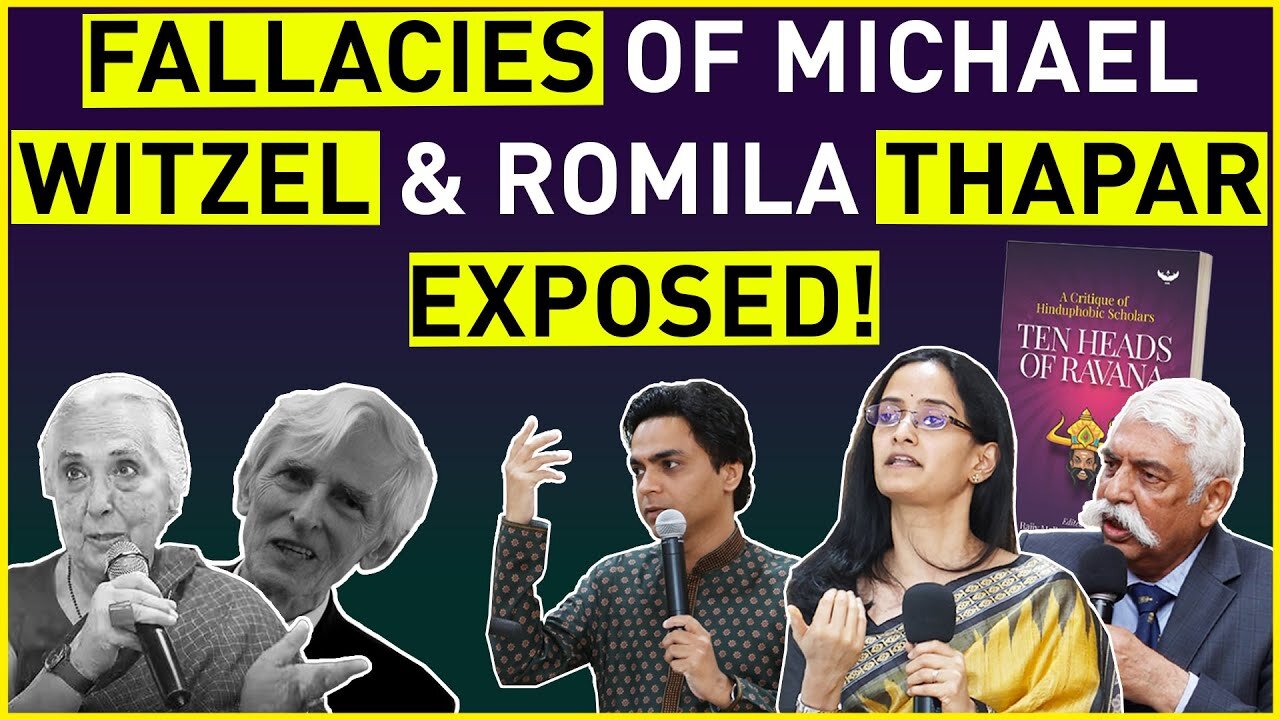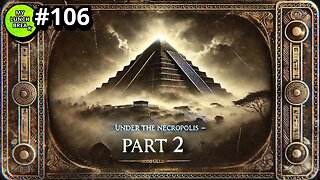Premium Only Content

'Ten Heads of Ravana' exposes Michael Witzel, Romila Thapar
Michael Witzel is an important scholar discussed in the book 'Ten Heads of Ravana' and Manogna Sastry analyzes his work in her cogent essay. Sastry discusses one of the major themes of Witzel’s academic work, consisting of his championing the Aryan Invasion/Migration into India theories, to the point of disregarding evidence and denigrating through ad hominem attacks, the works which challenge and have negated several of his central points. His proof and methodology have included “creating” evidence when none exists, through mistranslations and grammatical errors, to the point of distorting verses to suit his whims. When his claims have been discredited by others, Witzel has gone on to offer farcical explanations, even as the lack of academic ethics in his work stands tall. The essay highlights how such, instances demonstrate the poor scholarship that accompanies Witzel’s work in a theme as crucial as the Aryan issue, for it has direct implications on the temporal and spatial origins of the Vedas and Sanskrit heritage. Witzel has been a vociferous critic of Indians wherever they are fighting for a fair and just representation of their history. He played a role, along with Marxist historians such as Romila Thapar, in trying to thwart the attempts made by Hindus in North America to correct the history textbooks of Grade VI taught in California Public Schools. Witzel’s writings, laden under the garb of trying to protect “historical accuracy”, lays bare much of what is fallacious about his scholarship. The essay considers several such instances of Witzel’s work to demonstrate why his work qualifies him as one of today’s Intellectual Ravanas. Romila Thapar has been one of India’s foremost historians, having held control of premier national educational and research institutions to influence academic discourse and government policies over decades. Anurag Sharma, in his brilliant essay, refutes Thapar’s historiographical assumptions by providing strong counterexamples from Indian history. In the first section, he critically examines her views on the Islamic period of Indian history; in the second, her theories related to Hindu Dharma and the sacred texts such as Ramayana, Mahabharata and the Puranas; and in the third, her views on India as a nation and Hindu nationalism. Using evidence from fields of numismatics, archaeology, epigraphy, art and traditional texts to debunk many of the claims, Sharma makes a compelling case as to why Thapar’s work is unreliable and cannot be assumed as the mainstream narrative if we wish to return to scientific, objective and fact-based representations of history.
Snakes in the Ganga - http://www.snakesintheganga.com
Varna Jati Caste - http://www.varnajaticaste.com
The Battle For IIT's - http://www.battleforiits.com
Power of future Machines - http://www.poweroffuturemachines.com
10 heads of Ravana - http://www.tenheadsofravana.com
To support Infinity Foundation’s projects including the continuation of such episodes and the research we do:
इनफिनिटी फ़ौंडेशन की परियोजनाओं को अनुदान देने के लिए व इस प्रकार के एपिसोड और हमारे द्वारा किये जाने वाले शोध को जारी रखने के लिए: http://infinityfoundation.com/donate-2/
To Subscribe to Rajiv Malhotra Official:
राजीव मल्होत्रा ऑफिसियल की सदस्यता लेने के लिए:
/ @rajivmalhotraofficial
-
 25:08
25:08
MYLUNCHBREAK CHANNEL PAGE
1 day agoUnder The Necropolis - Pt 2
57.6K22 -
 1:45:59
1:45:59
Spittin' Chiclets
21 hours agoCanadian Chokejob - Game Notes Live From Chicago - 12.28.2024
121K17 -
 9:18
9:18
Space Ice
9 hours agoThe Guyver - Alien Bug Suits, Exploding Dragons, & Mark Hamill - Weirdest Movie Ever
33K13 -
 12:46
12:46
RealReaper
1 day ago $2.80 earnedMufasa is a Soulless Cash Grab
24.1K4 -
 5:14:24
5:14:24
FusedAegisTV
10 hours agoWelcome to The King of Iron Fist Tournament! \\ TEKKEN 8 Stream #1
76.1K1 -
 DVR
DVR
Bannons War Room
1 year agoWarRoom Live
101M -
 5:42:36
5:42:36
FreshandFit
15 hours agoLive X Censorship For Opposing Immigration?!
157K94 -
 1:08:16
1:08:16
Tactical Advisor
11 hours agoNEW Budget Glocks | Vault Room Live Stream 011
54.3K6 -
 16:30
16:30
SNEAKO
18 hours agoNO FRIENDS IN THE INDUSTRY.
116K40 -
 6:19
6:19
BlackDiamondGunsandGear
1 day agoHow Fat Guys can Appendix Carry
71.3K10